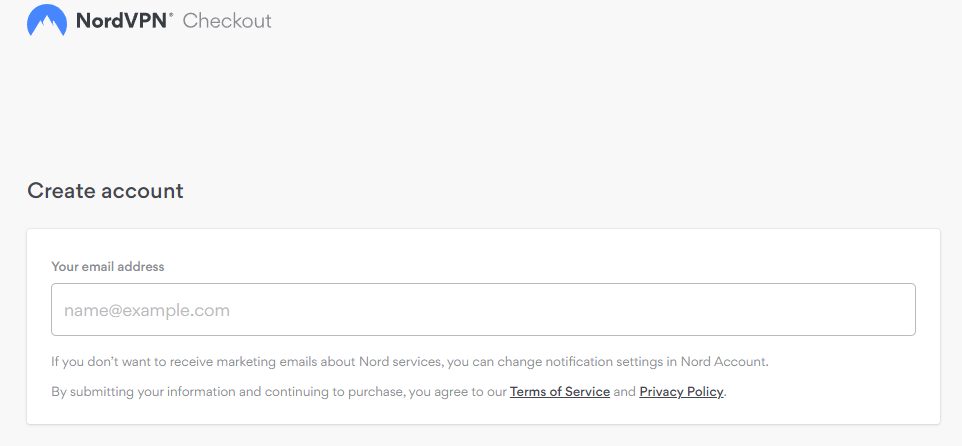Did you decide to purchase NordVPN? Do you wonder: Why Does NordVPN Keep Failing To Connect?
In this article we will show you step by step how to make a purchase of new NordVPN subscription, set up account and start using NordVPN software! After guide we will answer some questions regarding using an VPN app.
Table of Contents
Here is how to purchase a NordVPN subscription
- Start by visiting NordVPN website, you can click here.
- Click on pricing tab at the top of the page, here you can see current plans, pricing and deals. Choose which NordVPN plan you prefer to purchase and then click “Get *name of the plan* button.
You can choose between standard plan (pure NordVPN service) or other plans that comes with NordPass or NordLocker services.
- Now you have to type your email adress that you will be using NordVPN with.

- Now you have to choose payment method which you want to use, and proceed with it.
- Well done! If you followed this guide nicely you purchased NordVPN subscription! Look at your email inbox, here you will find purchase confirmation email.
Now download NordVPN APP and start using it
After purchasing your VPN plan, head to this page to download the NordVPN app
Now you can click start and enjoy using VPN!
Click here to get the Best NordVPN Deal! 🔥Let’s get back to main question, Why Does NordVPN Keep Failing To Connect?
Worth knowing
Worth knowing
Worth knowing
1. Distance from server location - The further away you are from the server location, the longer it will take for your connection to reach its destination. This is due to the laws of physics - information takes longer to travel greater distances. If you’re connecting to a server on the other side of the world, it stands to reason that it will take longer than if you were connecting to one in your own country.
2. Traffic congestion - Just like regular internet traffic, VPN traffic can get congested. This can be caused by any number of factors, such as high internet usage during peak hours or localized issues with your ISP or VPN provider’s network. When traffic is congested, data packets have to queue up and wait their turn to be sent, which can result in slower connection speeds.
3. Encryption overhead - One of the main benefits of using a VPN is that it encrypts your traffic so that prying eyes cannot see what you’re doing online. However, this process comes with a small amount of overhead which can impact connection speed. The more data that needs to be encrypted/decrypted, the longer it will take for your connection to go through.
4. Protocol restrictions - Some protocols (like OpenVPN and IPsec) are more resource intensive than others (like L2TP/IPSec), which means they can cause slightly slower connections speeds due to the increased processing power required. Additionally, some protocols are blocked by certain firewalls or networks, which can also impact connection speed depending on where you’re trying to connect from.
5 . Limited bandwidth - Many VPN providers offer plans with limited bandwidth caps (usually around 10-20GB per month). If you find yourself regularly exceeding your limit and need faster speeds , consider upgrading to an unlimited plan . Not all providers offer them , but those who do usually don’t charge much more for unlimited bandwidth compared To their tiered plans .
